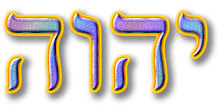Nissan/Aviv 19,5769 Second Day Yom Shaynee
The following is from Chabad from which I read a lot of articles and do a lot of studying from. The article is very wonderful although I don't agree with one part...we count the Omer starting on the day after the seventh day Sabbath which is First day or Sunday...or the Day of First Fruits or the Wave Offering when we believe our LORD and Savior Yeshua arose from the dead...Hallelu Yah!
According to Kevin Geoffrey, of Perfect Word Ministries in his book 'Messianic Mo'adiym Devotional', there are three interpretations of Leviticus 23:15, which says that the counting is to begin "from the day after the shabbat." So, we have three understandings of this scripture. Sounds like the same thing in the Christian Denominations over Bible beliefs.
So, he says the counting of the Omer could be the day after the first day of the Feast of Matzah, the day after the seventh-day Shabbat during the Feast of Matzah or on the day after the last day of the Feast of Matzah. WHEW!
The second one, the day after the seventh-day Shabbat counts fifty days to Shavuot and we have a first day celebration...or as most of us have always celebrated..a Sunday Day of Pentecost.
How ever you choose to count, the teaching below is good and I think will further you on your journey to the Old Path...the Way With Yeshua.
Catching Up With Ourselves
By Tali Loewenthal
When the Jewish people left Egypt they experienced a great leap forward. In a short space of time they progressed from abject slavery to freedom. The Sages tell us they were then faced with a new and important task: to catch up with themselves.
This is one of the explanations of the "counting of the omer" which is observed in the period between Pesach and Shavuot. From the second night of Passover we begin counting, day by day. After seven weeks, forty-nine days, we arrive at Shavuot on the fiftieth day, when the Torah was given at Mount Sinai.
This process of counting the days, one by one, is explained as signifying the attempt to improve oneself in a steady, step-by-step mode. Leaving Egypt was a leap of progress, a breakthrough from the lowest depths. But then there is the need to catch up with oneself, to achieve genuine and permanent qualities as individuals and as a nation.
Otherwise the freedom gained by leaving Egypt might easily be lost: instead of being a slave to the Egyptians, one would become a slave to something else.
Chabad teachings, based on the writings of the Kabbalists, explain that the seven weeks represent seven different aspects of character, the emotional forces which constitute the basic structure of the individual (Love, Severity, Mercy, the desire for Victory, Submission, Dedication, and Fulfillment).
The seven weeks provide the opportunity to improve this structure and make it more stable. Only after this period of self-improvement were the Jewish people ready to meet with G-d at Sinai and to receive His Torah.
This quest applies also to the individual through the ages. After the uplifting experience of Passover, the counting of the omer expresses an attempt to internalize this experience: to change oneself in a genuine and permanent way so as to live up to one's new level of spiritual freedom.
We can also apply this idea to society as a whole in our modern age. Over the past century we have experienced a great leap forward of technological progress which has provided us with many kinds of comfort and freedom. But this freedom and power bear with them a dangerous instability. We see this in the vast horrors of fifty years ago, and also in the social problems of today.
Our modern world, too, needs to "count the omer," to try and move step by step, improving our inner lives, our personal morality, the interplay of our emotions. Do people have freedom, or are they becoming ever more deeply enslaved to their appetites?
Torah teachings give guidance not only on how to run a Jewish home, but also on how to build a healthy and just society. The seven Noahide laws describe how all human beings should seek to live.
(The seven Noahide laws commanded by G-d to all of mankind are: to believe in G-d [and not to serve idols]; not to blaspheme against G-d; not to murder [including euthanasia and abortion, unless it is to save the mother's life]; not to steal; not to commit adultery, incest and other forms of personal immorality; not to eat a limb from a living animal; and to set up a judicial [and educational] system to apply these laws in society.]
Through applying the boundaries, restraints and positive duties imposed by these laws in the context of modern life we can seek to catch up with our own progress. By attending to our internal structure as human beings, we can prepare ourselves, globally, to meet with G-d and to discover the truly perfect world promised by the Prophets.
Subscribe to:
Post Comments (Atom)











No comments:
Post a Comment